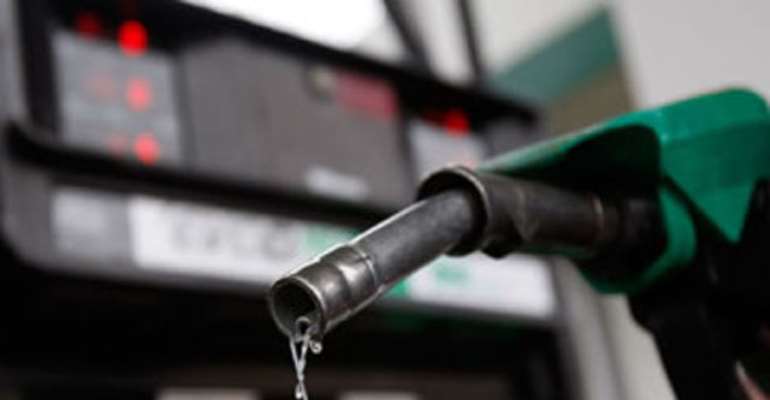Another way out of fuel subsidy - Nigerian Tribune

The Nigerian Association of Chambers of Commerce, Industry, Mines, and Agriculture (NACCIMA), Lagos Chamber of Commerce and Industry (LCCI), and others, want President Muhammadu Buhari to remove fuel subsidy, while the Nigeria Labour Congress (NLC), and Trade Union Congress (TUC), stoutly resist the idea. But really there would have been no cause for splitting of hairs, if everyone understood the cause of the fuel subsidy.
If subsidy was removed, the price of petrol will certainly increase, and the immediate effect would be a spike in the price of every other commodity. Labour surely does not want that spike. It would lead to inflation, which will cause the man on the street to require more Naira, which would then be weaker, in order to buy things in the market.
But manufacturers and industrialists who are already contending with the removal of subsidy from diesel and black oil do not think the heavens would fall if petrol subsidy was removed. They think they can cope. They would simply pass the cost to the consumers, and there is nothing to it.
You may be surprised to know that fuel subsidy could be reduced without President Buhari getting on the bad side of anyone: Simply get the Central Bank of Nigeria (CBN) to strengthen the Naira against the U.S Dollar, which is the currency of the crude oil industry. The argument here is that the price of fuel is a function of the exchange rate, and not of the price of crude oil
Carefully go through the following thought: As at June 23 2015, the landing cost of imported petrol (from refining, freight, and storage in tank farms) was approximately N120 per litre. From the tank farms within Nigeria to the pump islands at the petrol stations costs another N15. This brings the total cost to N135. With petrol being sold at N87, it means the subsidy element is N48 per litre.
If the local refineries were to produce petrol, the cost per litter would be about N96. If you add the N15 local costs, you arrive at N111. This gives you a subsidy of N24 per litre if you still sell petrol at the subsidized N87 per litre. Thus, producing locally does not still help if certain conditions are not met.
Now for the real McCoy: The official CBN exchange rate is about N200 to one US Dollar. Petroleum is traded in Dollar. If government were to strengthen the Naira by revaluing it by half, it should exchange for N100 to one US Dollar.
If the Naira were to be strengthened to N100 against one US dollar, the landing cost of imported petrol would be N60 plus the N15 local cost. This gives a cost of N75, which allows a profit of N12. If the petrol was produced locally the roughly N55 cost of product plus the N15 local cost will give cost of N70, which will also allow a profit of N17. Therefore, whether petrol is imported or produced locally, government would have no need for retaining or removing fuel subsidy.
But it is an open secret that the CBN, whose statutory responsibility is to stabilise prices by controlling inflation, interest, and exchange rates, is under pressure from multilateral financial institutions to devalue the Naira. What we are saying is that if the CBN is persuaded to make the Naira stronger, the removal of petrol subsidy will simply become a non-issue.
